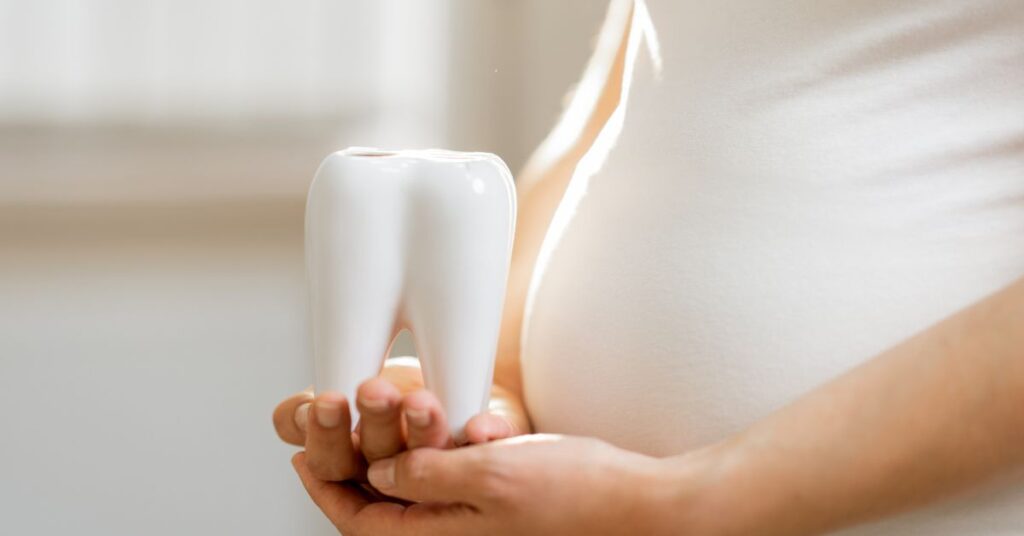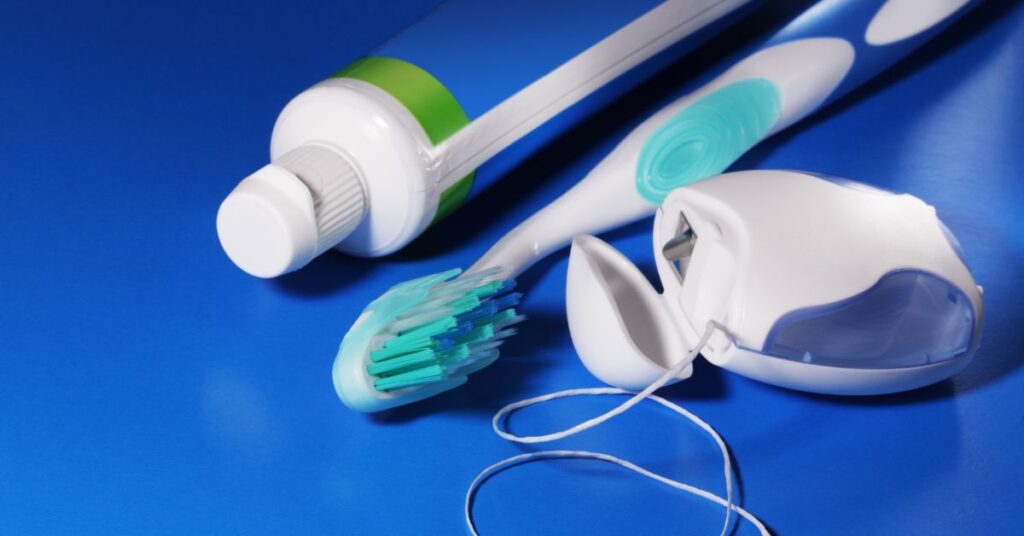
Introduction
Welcome to the world of dental care during pregnancy. In this first chapter, we will delve into the crucial aspects of understanding why oral health during pregnancy is of utmost importance and unravel some common misconceptions surrounding dental care in this delicate phase of life.
The Importance of Dental Care During Pregnancy
Pregnancy is a time of profound changes within a woman’s body, and these changes extend to her oral health as well. Let’s explore why maintaining good oral health during pregnancy is essential and gain insights into the connection between oral health and this transformative period.
Understanding the Connection Between Oral Health and Pregnancy
Pregnancy is a rollercoaster of hormonal fluctuations, which can impact various aspects of your body, including your oral health. One such change is an increased risk of gum disease, which can have far-reaching consequences if left unattended. We will delve into these hormonal fluctuations and their effects on your gums and teeth.
Key Takeaways for Expecting Mothers
Expecting mothers, you are not alone in this journey. We will provide you with key takeaways, guiding you on the path to maintaining optimal oral health during your pregnancy. From practical tips to understanding when to seek professional dental care, we’ve got you covered.
The Common Misconceptions About Dental Care During Pregnancy
With great transformations come great myths. In this section, we’ll debunk some common misconceptions about dental care during pregnancy, ensuring you have accurate information to make informed decisions.
Debunking Myths: Is It Safe to Visit the Dentist While Pregnant?
There’s often a fear surrounding dental visits during pregnancy. Is it safe? Can dental procedures harm the baby? We’ll address these concerns and give you a clear understanding of when and why it’s crucial to visit your dentist during this time.
Addressing Concerns: Potential Risks and Benefits
Pregnant women have unique concerns, and we’ll address them comprehensively. We’ll explore the potential risks and benefits of dental care during pregnancy, ensuring that you are armed with the knowledge needed to make the right choices for your oral health.
In the following chapters, we will explore various aspects of dental care during pregnancy, including oral health changes, the importance of regular dental checkups, maintaining good oral hygiene, addressing dental concerns safely, and provide answers to frequently asked questions about dental care in this phase of life. So, let’s continue this journey, ensuring a healthy smile during your beautiful journey of pregnancy.
Oral Health Changes During Pregnancy

Pregnancy is a remarkable journey that brings about significant changes in your body, and your oral health is no exception. In this chapter, we will explore the impact of hormonal changes on your gums and teeth and address common oral health issues that can arise during pregnancy.
Hormonal Changes and Their Impact on Oral Health
Exploring Hormonal Fluctuations in Pregnancy
Pregnancy is a time of incredible hormonal shifts. These changes can have both direct and indirect effects on your oral health. Some key points to consider include:
Increased Estrogen and Progesterone: Elevated levels of these hormones can make your gums more sensitive to plaque, potentially leading to gingivitis.
Gingivitis Risk: Hormonal changes may make you more susceptible to gingivitis, an early stage of gum disease characterized by red, swollen, and bleeding gums.
How Hormones Affect Gums and Teeth
Your body’s hormonal dance can influence your oral health in several ways:
- Gum Inflammation: Hormones can lead to increased blood flow to the gums, causing them to swell and become more susceptible to irritation.
- Altered Response to Bacteria: Hormones can affect the way your body responds to the bacteria in your mouth, potentially increasing the risk of gum disease.
Common Oral Health Issues During Pregnancy
Pregnancy is a time of joy, but it can also bring about specific oral health challenges. In this section, we will discuss two common issues – pregnancy gingivitis and pregnancy tumours – and explore how to manage them effectively.
Pregnancy Gingivitis: Causes and Prevention
- Causes: Hormonal changes, coupled with the effects of increased blood flow to the gums, can cause gingivitis. Poor oral hygiene can exacerbate the condition.
- Prevention: Maintaining a strict oral hygiene routine, including brushing and flossing, is crucial. Regular dental checkups are also important to catch and address gingivitis early.
Pregnancy Tumors: What Are They and How to Manage Them
- Understanding Pregnancy Tumors: These are non-cancerous growths on the gums, often appearing in the second trimester. They are typically painless and can bleed when irritated.
- Management: Pregnancy tumours usually regress after pregnancy, but in some cases, a dentist may recommend removal. Ensuring proper oral care and keeping the area clean can help prevent their formation.
In the subsequent chapters, we will dive deeper into the intricacies of dental care during pregnancy, covering various aspects, from the importance of regular dental checkups to maintaining good oral hygiene, addressing dental concerns, and answering frequently asked questions to empower you with the knowledge you need for a healthy pregnancy and a confident smile.
The Importance of Regular Dental Checkups

In the journey of pregnancy, regular dental checkups are not only important but can be considered a cornerstone of maintaining optimal oral health. In this chapter, we will delve into what to expect during prenatal dental care, the crucial role of the dentist, and safe dental procedures tailored for pregnant women.
Prenatal Dental Care: What to Expect
The Role of the Dentist in Prenatal Care
When you’re pregnant, the dentist becomes a vital member of your healthcare team. Their role extends beyond just your oral health. Here’s what to expect from your dentist during prenatal care:
- Oral Health Assessment: Your dentist will thoroughly examine your teeth and gums, looking for any signs of issues like gum disease or tooth decay.
- Treatment Planning: Based on their assessment, your dentist will develop a treatment plan if necessary. This plan may include routine cleanings, filling cavities, or addressing other dental concerns.
- Customized Advice: Your dentist will provide guidance on maintaining good oral hygiene practices at home, tailored to your specific needs during pregnancy.
Safe Dental Procedures for Pregnant Women
Pregnant women have unique considerations when it comes to dental procedures. Your dentist will ensure that all treatments are conducted safely for both you and your baby. Here are some important aspects of safe dental procedures during pregnancy:
- Radiation Safety: Your dentist will take precautions if X-rays are necessary, such as using lead aprons to shield your abdomen.
- Anaesthesia: If anaesthesia is required for dental work, your dentist will opt for the safest options and carefully monitor your response.
- Medication Considerations: Your dentist will be mindful of prescribing medications and will choose those that are safe for pregnant women.
Benefits of Regular Checkups for Mother and Baby
Regular dental checkups offer a host of benefits for both you and your baby during pregnancy. Let’s explore these advantages:
Preventing Complications: How Dental Checkups Benefit the Mother
- Early Issue Detection: Regular checkups allow for the early detection of oral health issues, preventing them from escalating into more serious problems.
- Gum Disease Management: Since pregnancy can increase the risk of gum disease, consistent dental visits can help manage and prevent this condition.
- Overall Well-Being: Good oral health contributes to your overall well-being, ensuring you’re at your best during pregnancy.
Impact on the Baby: Healthy Pregnancy and Dental Care
Maintaining your oral health during pregnancy can also positively affect your baby:
- Prevention of Preterm Birth: Studies have shown a potential link between gum disease and preterm birth. By managing your oral health, you can reduce this risk.
- Healthy Habits: Taking care of your teeth sets an example for your child and instills good oral hygiene habits from a young age.
As you proceed through this comprehensive guide, you will gain further insights into how to maintain a pregnancy-safe oral care routine, make informed decisions about dental concerns, and find answers to common questions related to dental care during pregnancy. Your journey to a healthy pregnancy and a radiant smile continues.
Maintaining Good Oral Hygiene During Pregnancy

During pregnancy, maintaining excellent oral hygiene is not only essential for your own health but also for the well-being of your developing baby. In this chapter, we will explore practical tips for a pregnancy-safe oral care routine and discuss the role of nutrition in oral health during this special phase of life.
Tips for a Pregnancy-Safe Oral Care Routine
Brushing and Flossing: Best Practices
- Frequency: Brush your teeth at least twice a day with a soft-bristle toothbrush. Pay attention to thorough cleaning, especially before bedtime.
- Toothpaste: Use fluoride toothpaste to help prevent cavities. Ensure you spit out the toothpaste without rinsing after brushing.
- Flossing: Don’t forget to floss daily. Flossing helps remove food particles and plaque from between your teeth, where your toothbrush can’t reach.
Choosing the Right Oral Care Products
- Toothbrush Selection: Opt for a soft-bristle toothbrush to avoid causing any irritation to your gums. Electric toothbrushes can also be an effective choice.
- Mouthwash: If you use mouthwash, make sure it’s alcohol-free to prevent any potential harm to your baby. Consult your dentist for recommendations.
- Oral Care for Morning Sickness: If morning sickness is a challenge, rinse your mouth with water or a mild fluoride mouthwash after vomiting to help neutralize stomach acid.
Nutrition and Oral Health in Pregnancy
The Role of Diet in Oral Health
- Balanced Diet: A balanced diet rich in essential nutrients like calcium, vitamin D, and vitamin C is crucial for maintaining strong teeth and healthy gums.
- Limit Sugary Snacks: While cravings may lead you to sugary snacks, try to limit their consumption. Sugary foods can increase the risk of tooth decay.
- Stay Hydrated: Drink plenty of water throughout the day. Staying hydrated helps maintain the moisture in your mouth and washes away food particles.
Foods to Include and Avoid for Healthy Teeth and Gums
- Include Calcium-Rich Foods: Incorporate dairy products, leafy greens, and fortified foods into your diet to ensure adequate calcium intake.
- Vitamin C Sources: Citrus fruits, strawberries, and bell peppers are excellent sources of vitamin C, which helps maintain healthy gums.
- Avoid Excessive Sugars: Limit the consumption of sugary snacks and beverages. Sugars can feed harmful oral bacteria.
- Minimize Acidic Foods: Acidic foods and drinks can erode tooth enamel. Be mindful of foods like citrus fruits and sodas.
By following these oral care and nutrition guidelines, you can protect your oral health and create a healthy environment for your baby. As you continue reading, you’ll discover more valuable information about addressing dental concerns, managing dental anxiety, and receiving answers to frequently asked questions about dental care during pregnancy. Your journey to a healthy pregnancy and radiant smile continues.
Addressing Dental Concerns Safely

Pregnancy is a time of change, not only in your body but also in your oral health. As you navigate this period, it’s important to be aware of how to address dental concerns safely. In this chapter, we will explore the management of dental emergencies during pregnancy and the safety considerations for dental procedures.
Handling Dental Emergencies During Pregnancy
Toothaches, Broken Teeth, and More: What to Do
- Toothaches: If you experience a toothache, rinse your mouth with warm water and gently floss to ensure there’s no food or debris causing the pain. Avoid using aspirin or placing aspirin directly on the tooth, and contact your dentist promptly.
- Broken Teeth: For a broken tooth, rinse your mouth and the broken pieces with warm water. If there’s bleeding, apply gentle pressure with a clean cloth. Contact your dentist immediately.
- Lost Fillings or Crowns: If you lose a filling or crown, you can use over-the-counter dental cement as a temporary solution until you see your dentist. Avoid using superglue or other adhesives.
Emergency Dental Care Protocols
- Contact Your Dentist: In case of a dental emergency, always reach out to your dentist first. They can provide guidance tailored to your situation.
- Avoid Non-Essential Medications: While pregnant, it’s best to avoid non-essential medications. Your dentist will consider this when recommending pain relief options.
Dental Procedures and Pregnancy: What’s Safe and What’s Not
Routine Procedures: Cleanings and X-rays
- Dental Cleanings: Regular dental cleanings, including scaling and polishing, are safe during pregnancy. They help prevent gum disease and maintain oral health.
- Dental X-rays: If X-rays are necessary, your dentist will use precautions like lead aprons to protect you and your baby. Dental X-rays are typically considered safe in the second trimester.
Major Treatments: Assessing Risks and Benefits
- Fillings and Root Canals: Some dental treatments, like fillings and root canals, can be performed during pregnancy. Your dentist will weigh the risks and benefits before proceeding.
- Elective Procedures: Elective treatments, such as teeth whitening or cosmetic procedures, are best postponed until after pregnancy to avoid potential risks.
- Consult Your Obstetrician: It’s advisable to consult with your obstetrician and dentist before any major dental procedure during pregnancy. They can provide guidance based on your specific situation.
By following these guidelines and promptly addressing dental concerns, you can ensure the safety of both you and your baby. As you proceed with the article, you’ll discover answers to common questions about dental care during pregnancy and gain a comprehensive understanding of how to empower pregnant women for optimal oral health. Your journey toward a healthy pregnancy and a beautiful smile continues.
Conclusion
Empowering Pregnant Women for Optimal Oral Health
Empowerment comes through knowledge and action. By understanding the key aspects of dental care during pregnancy, you can take control of your oral health, reducing the risk of complications and ensuring a positive experience for both you and your baby.
Your partnership with your dentist is pivotal in this journey. Regular checkups, open communication, and addressing any concerns promptly will help you maintain a healthy smile.
Taking the Next Steps: Your Dental Care Plan for a Healthy Pregnancy
Now that you have a wealth of information at your disposal, it’s time to create your dental care plan for a healthy pregnancy:
Schedule regular dental checkups: Make these a priority. Discuss your pregnancy with your dentist so they can tailor their approach to your specific needs.
Maintain your oral care routine: Keep up with good oral hygiene practices. Brush, floss, and rinse as recommended, and choose products suitable for pregnancy.
Watch your diet: Ensure your diet supports healthy teeth and gums. Avoid excessive sugary or acidic foods.
Address concerns promptly: If you experience dental issues, don’t hesitate to seek help. Your dentist can guide you through the best course of action.
Manage dental anxiety: Implement relaxation techniques and communicate your anxiety with your dentist. A comfortable and anxiety-free experience is possible.
Your journey to optimal oral health during pregnancy is now in your hands. We hope this guide has been a valuable resource in supporting you on this path. With proper care, you can look forward to a healthy pregnancy, a radiant smile, and a bright future for you and your little one.
